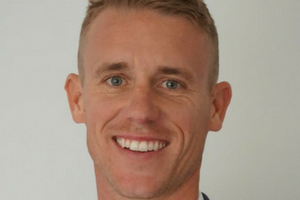Fall 2018 Policy Intensives Workshops
We are proud to announce our Fall 2018 Policy Intensives with Practitioners Series! Each session will offer a half-day workshop on specific and timely topics in public policy. We will welcome expert leaders in each field who are working, practicing, and advancing their respective fields each and every day.
All workshops will be from 11 AM to 3 PM in School of Public Policy (SPP) Room 175.
Lunch will be served and RSVP is required.
Note: The following workshops are eligible for Professional Development credit for School of Public Policy Students.
 |
A Convenient Truth: How Film Can Influence Policy
Friday, September 21, 2018
Hannah Earl
Talent Associate
Moving Picture Institute
While America's founders used the 'major media' of the time (newspapers) to gain public support for the Constitution, today's policy influencers are using documentary films to change public opinion. From "Inconvenient Truth" to "Icarus", documentary films are a growing platform for making policy and political arguments. In this session, Hannah Ruth Earl (Moving Picture Institute) will discuss the craft of empathetic stories and the value of narrative storytelling for public policy professionals
 |
How the Intelligence Community Works - Sometimes
Friday, October 19, 2018
Roger George
Professor of National Security Practice
Occidental College
The workshop will examine the multiple roles that the intelligence community plays in supporting policymakers, even when they appear not to want it. A major focus will be on the IC's role in the interagency process, which works better or worse under different administrations. A particular challenge is that of maintaining the Intelligence Community's objectivity and reducing the instances of "politicization." The talk will include some discussion of the current crisis in the intelligence-policy relationship.
 |
California Community Colleges: Opportunities and Challenges
Friday, November 30, 2018
Cameron Sublett
Associate Professor of Education
Pepperdine Graduate School of Education and Psychology
The California Community College (CCC) system is the largest system of higher education in the country. In California, the CCC system educates 70 percent of the state's nurses, and 80 percent of the state's firefighters, and law enforcement personnel. The CCC system also provides associate degrees and short-term certificates in over 175 fields. Serving more than 2.1 million students across 114 campuses, the CCC system is uniquely positioned as an engine for increased economic mobility, particularly for low-income, first-generation college students. The CCC system faces a number of pressing challenges, however. These include: decreasing student enrollments, financial constraint, technological disruption, and poor and inequitable student outcomes. A number of recent policy initiatives, supported by the governor, have sought to address these challenges, but the extent to which these investments will result in meaningful, system-wide improvement is unclear. The goal of this session will be to highlight the unique nature of the CCC system and its students, and to discuss some of the greatest opportunities and most pressing challenges currently facing higher education policymakers in the state.